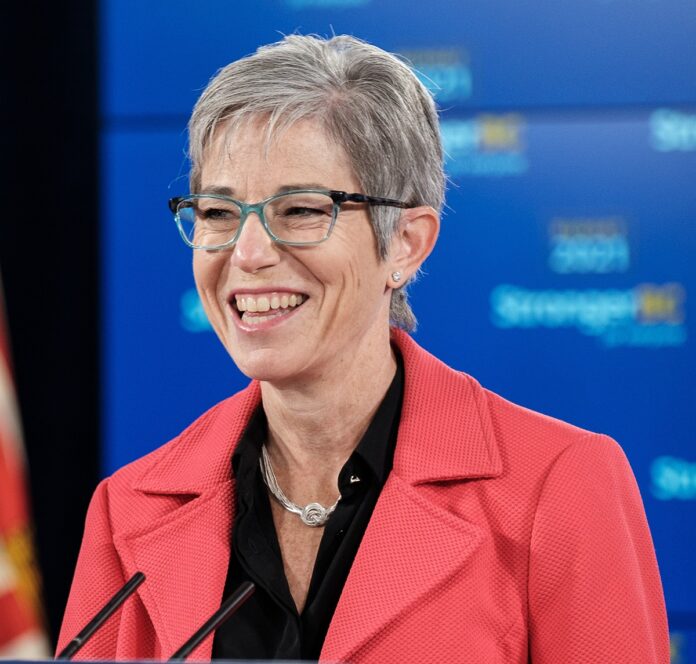LIKE other jurisdictions, B.C. is expected to see slower economic growth through 2023 because of global inflation and higher interest rates, before steady growth resumes in the medium term, according to projections from private-sector forecasters, the Province said on Monday.
Each year, B.C.’s finance minister meets with the Economic Forecast Council (EFC), a 13-member council of private-sector forecasters from throughout Canada, in preparation for the next year’s budget. This is the second year that an additional set of discussions was added, providing an opportunity to consult with an Environmental, Social and Governance (ESG) Advisory Council to explore how the provincial government can continue to build a more inclusive, sustainable economy and support well-being in British Columbia.
The EFC anticipates the province’s economy will grow by 2.9% in 2022 and 0.4% in 2023; slower than their January 2022 forecasts of 4.2% and 2.7%, respectively. The updated figures are similar to what was presented in the Province’s Second Quarterly Report. Real gross domestic product (GDP) growth is then expected to pick up, with an increase of 1.6% in 2024, followed by gains of 2.3%, 2.3% and 2.1% in 2025, 2026 and 2027, respectively. The reduction in the near-term outlook is consistent with other jurisdictions and reflects persistent global inflation and interest rates rising higher and more rapidly than expected throughout Canada.
“We’re entering this period of slower growth and challenging global economic times in a strong position to continue supporting people, because B.C.’s economy grew more than most last year,” said Selina Robinson, Minister of Finance. “We’ll use the resources we have to address the issues that matter most to people, including housing, health care and building a sustainable economy that works for everyone – but no matter what is on the horizon and no matter what the numbers show, this government will continue to be here to support people.”
Discussions with the EFC and the ESG Advisory Council focused on current events, issues affecting B.C.’s economy and the environmental, social and governance opportunities and challenges facing the province. Topics at the meetings included:
* global inflation and monetary policy impacts;
* government policies to stimulate investment and ensure shared prosperity;
* socioeconomic factors in B.C., such as inequality, Indigenous partnerships, and well-being;
* environment, climate change and the transition to a lower carbon economy;
* housing affordability and supply;
* labour market dynamics and immigration; and
* opportunities for businesses to build on B.C.’s strong ESG profile.
“We are committed to building an inclusive economy, where environmental and social sustainability is the basis for future growth,” said Robinson. “A strong social, cultural and economic foundation is key to successful and resilient communities. We know this, and we know generations will benefit from the decisions we make right now.”
Forecasts and feedback from the two councils will be used to inform the next provincial budget, which will be released on February 28, 2023. EFC members will also have an opportunity to submit revised forecasts in early January.
Quick Facts:
* In the Province’s Second Quarterly Report, B.C. projected a revised operating surplus of $5.7 billion in the 2022-23 fiscal year.
* Since the summer, B.C. has rolled out approximately $2 billion in affordability measures.
* Environmental, Social and Governance are three main categories often discussed when evaluating sustainability performance, risk-mitigation planning and societal well-being.













